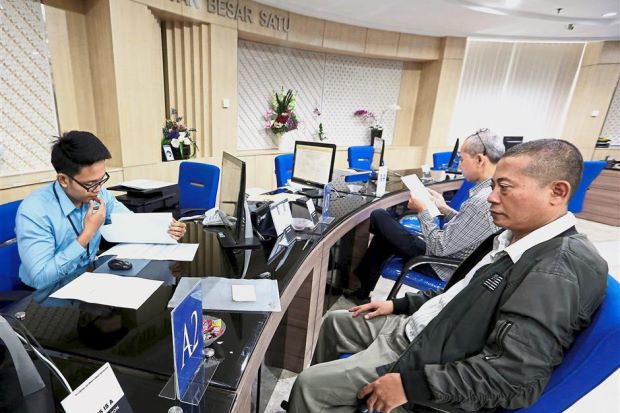Indonesia goes hi-tech in hunt for tax assets
JAKARTA: Indonesia’s tax office plans to spend hundreds of millions of dollars to update its outdated technology to boost low tax compliance and raise revenue collection in South-East’s largest economy, the country’s tax chief told Reuters.
Indonesia completed one of the world’s most successful tax amnesties in 2017, but its very success has created headaches.
The tax office has to use old technology or even manual labour to deal with a wealth of new data, Robert Pakpahan, director-general of the finance ministry’s tax department, said.
A standard method of assessing companies’ profit margins, for example, has to be done manually by tax officials, said Pakpahan. “It should be done by machines, through automation so that it’s accurate.”
The majority of Indonesia’s more than 250 million people do not pay tax and many are not even familiar with the concept of paying. Only 38 million are registered taxpayers, including corporations, and less than a third submit tax returns.
A nine-month tax amnesty that ended in March 2017 exempted tax dodgers from prosecution and imposed on them only small fines if they declared their undisclosed wealth, which helped the government unearth assets worth around US$330bil.
Moreover, a law passed in 2017 requires financial institutions to share data with the tax offices from this month under a global transparency drive, while data on offshore assets should be shared from September.
With only 43,000 staff, Pakpahan, who was appointed to the job last November, said it was difficult to manage data while going after, sometimes, reluctant taxpayers.
“The number of taxpayers grows, the data increases, and so we cannot count on a manual system only.
“That’s why we are buying a sophisticated system,” Pakpahan said.
Indonesia will buy a new “core tax system” via a tender this year with a winner due to be announced next year, he said.
The tax chief estimated the budget at around three trillion rupiah (US$218.1mil), but said it could cost more as other countries have been known to spend US$400mil-US$600mil for a similar system.
With the new technology, Pakpahan said the tax office would be better able to profile taxpayers and uncover ones who may not have paid.
The system could also analyse margins to help the tax office find possible doctored financial statements or cases of transfer pricing – where a company exports at a lower price or at a loss to an affiliate to report lower profits or avoid tax.
“Once the system is in place, compliance should increase because we can be fairer to people,” he said.
In addition, the tax office is also creating new connections with some state firms to allow real-time exchanges of transaction data, which would reduce paperwork for value-added tax payments, Pakpahan said.
The tax office had done this for state oil company Pertamina and will soon use the same technology for state power utility Perusahaan Listrik Negara and state-controlled banks.
The adoption of technology would still probably not be enough to achieve a target of 16% ratio of tax revenue to gross domestic product by 2019, Pakpahan said, but it would be a step towards an improvement.
The current ratio is around 11%, one of the lowest in South-East Asia.
Nonetheless, Pakpahan is optimistic that this year’s tax target of 1,618.1 trillion rupiah would be met, after seeing a more than 15 percent growth in the early months of 2018 compared with a year ago. — Reuters
Source: https://www.thestar.com.my/business/business-news/2018/04/05/indonesia-goes-hitech-in-hunt-for-tax-assets/#hRsO8jrrelW1qD4p.99


 English
English




